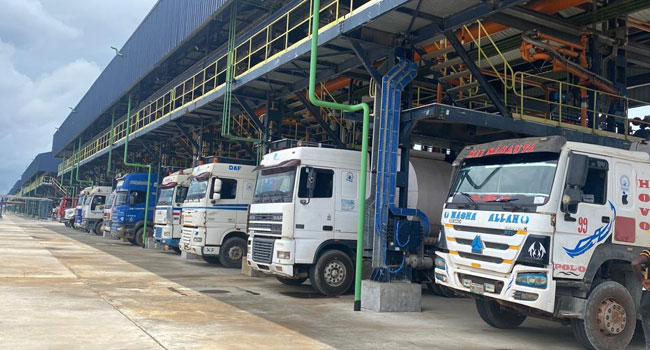Understanding the Port Harcourt Refining Company Ltd. (PHRC) and What It Means for Trade & Logistics
When we refer to “port harcourt refinery”, we are talking about the complex operated by the Port Harcourt Refining Company Ltd. (PHRC) in Alesa‐Eleme near Port Harcourt, Rivers State, Nigeria.
This article explains its capacity, role in the supply chain, challenges and how businesses such as import/export, wholesale distribution, and logistics firms should interpret developments. It also highlights how Wigmore Trading can assist companies in navigating this environment.
Key Facts & Capacity of the Port Harcourt Refinery
-
The PHRC complex comprises two refinery units: the “old” refinery (commissioned 1965) with nominal capacity ~60,000 barrels per day (bpd), and the “new” unit (commissioned ~1988/89) with ~150,000 bpd. Combined nameplate capacity: around 210,000 bpd.
-
The refinery produces a range of petroleum‐derived products: petrol (gasoline), diesel, liquefied petroleum gas (LPG), low/high pour fuel oil, paraffin.
-
Historically, operational throughput has fallen far below design due to maintenance, crude supply, and structural issues.
-
Recent developments indicate operations on one crude distillation unit began at a low throughput (~20,000 bpd) with a ramp‐up expected.
-
More recently, the complex was shut down for planned maintenance and sustainability assessment.
Why port harcourt refinery Matters for Trade & Supply Chains
Impact on fuel supply & downstream logistics
For companies involved in import, export, wholesale distribution, or logistics, the health of the PHRC matters because:
-
Local refining capacity affects Nigeria’s dependency on imports of refined petroleum products. When PHRC is offline or under‑performing, more refined products must be imported, altering supply dynamics.
-
Fuel cost and availability influence logistics (transport costs), manufacturing (energy input), and import/export margins in West Africa.
-
A functioning local refinery reduces shipping cost and lead time for refined product imports—important for traders sourcing from or shipping into Nigeria.
Implications for wholesalers & FMCG/logistics players
-
If domestic supply is constrained, there will be upward pressure on prices of petroleum‐based inputs (like fuel oil, diesel). A logistics firm may face higher cost per ton transported.
-
For importers/exporters of petroleum‐by‐products (LPG, fuel oil), an uptick in local refining offers new sourcing options, but also shows risks if operations are interrupted.
-
For FMCG distribution, trucking fleets rely on fuel. Supply disruptions or price spikes can impact distribution schedules and cost structures.
Challenges Facing the Port Harcourt Refinery
Technical & structural issues
-
PHRC’s “old” and “new” units were designed to operate in tandem, but over time neglect, inadequate maintenance and obsolete units reduced performance.
-
At times, the refinery was losing significant amounts monthly due to inefficiency and sub‑standard product output.
Supply & operational interruptions
-
Crude supply pipeline issues, infrastructure bottlenecks and funding constraints have impacted throughput.
-
Until ramp‑up to near full capacity, Nigeria still imports a significant volume of refined fuels—this means the “port harcourt refinery” promise remains partially unfulfilled in terms of full supply self‑sufficiency.
Practical Solutions & How Wigmore Trading Can Help
If your business interacts with fuel, logistics, or inputs influenced by the “port harcourt refinery”, here are actionable steps:
Monitor supply disruptions & hedge risk
-
Keep awareness of PHRC operational status (e.g., announcements of maintenance or shutdowns).
-
Wigmore Trading can provide supply alerts and help you build contingency sourcing strategies (e.g., import alternatives) when PHRC is offline.
Diversify sourcing & logistics planning
-
Instead of relying solely on local refined product supply, maintain relationships with regional refiners or importers—Wigmore Trading can facilitate introductions.
-
Adjust logistics planning to accommodate fuel cost fluctuations—plan extra lead-time or alternative routes if fuel supply is unstable.
Negotiate contracts & pricing with insight
-
Having visibility on refinery capacity and downstream availability gives you leverage when negotiating rates with carriers, fuel suppliers or distributors.
-
Wigmore Trading can help you benchmark regional fuel cost, identify favourable wholesalers, and optimise supply chain margins.
Support manufacturing and distribution clients
-
For companies in FMCG or manufacturing that use fuel for power or transport, educating them about refinery status supports their budgeting and operations.
-
Wigmore Trading can act as a partner-advisor: offering market intelligence on PHRC and how it affects input cost.
Outlook: What to Expect & How to Prepare
-
If PHRC achieves its ramp-up (to near its 210,000 bpd nameplate) the downstream market in Nigeria could see improved product availability and possibly lower import dependency.
-
However, near-term risks remain: shutdowns, pipeline or infrastructure failures, regulatory or funding delays.
-
For trade and logistics businesses: treat the “port harcourt refinery” as a strategic variable—not yet entirely dependable, but increasingly significant.
Conclusion
Understanding the “port harcourt refinery” (PHRC) is essential for companies engaged in trade, wholesale distribution, FMCG logistics, or import/export in Nigeria and West Africa. Its operational status influences fuel availability, cost structures, and logistics planning. Partnering with a knowledgeable supply chain ally such as Wigmore Trading enables you to anticipate risks, diversify sourcing, negotiate better, and respond proactively to changes in the refining landscape.
Contact Wigmore Trading today to streamline your sourcing and supply-chain planning around PHRC developments.








Comments are closed.